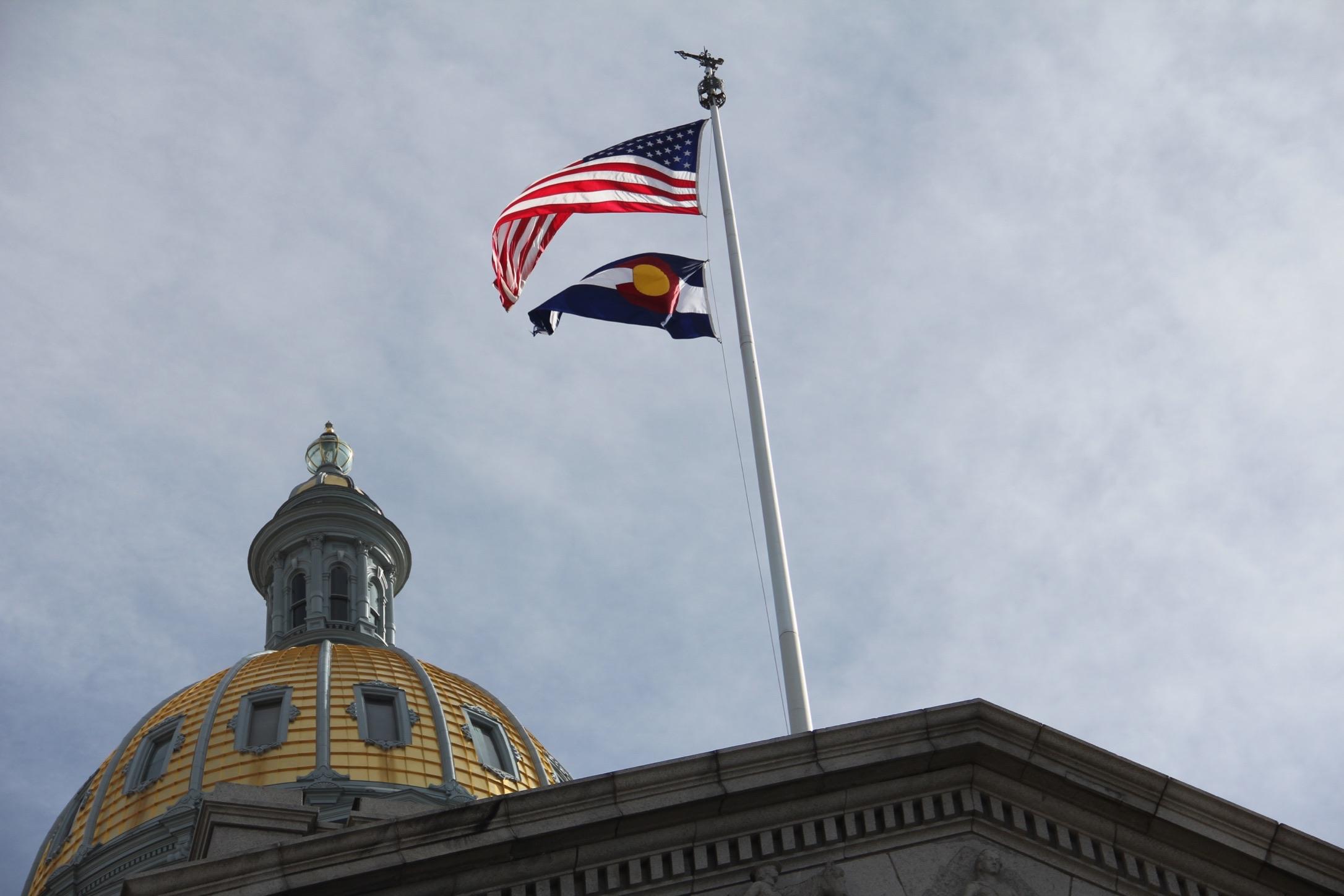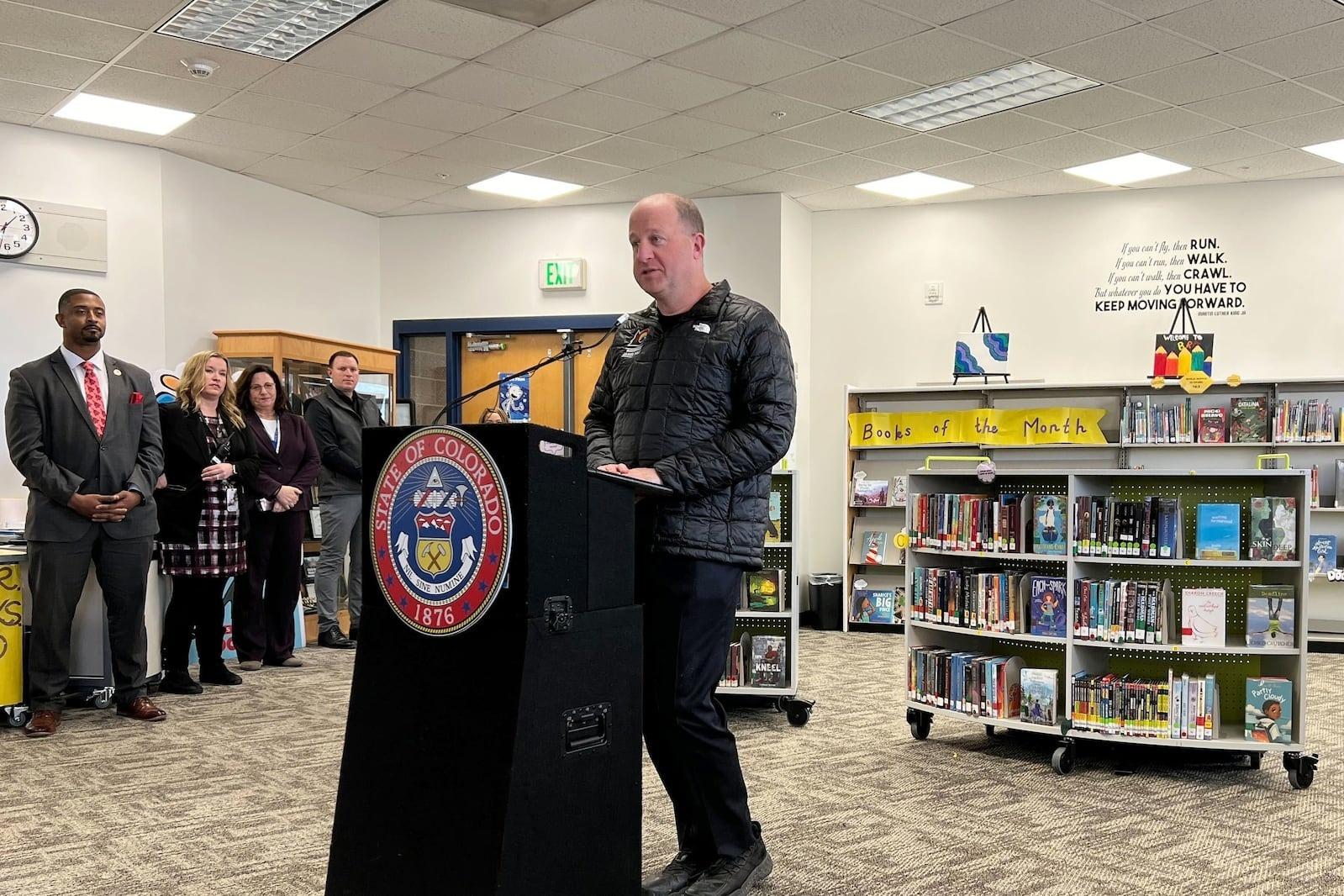
Democrats are smarting from their latest loss on fiscal policy after this week’s defeat of Proposition CC, but as the next legislative session approaches, they are considering doubling down and asking voters for a full repeal of the Taxpayer’s Bill of Rights next year.
For the second time in a year, Colorado voters have soundly rejected Democrats’ request to add tax money to the state’s budget instead of refunding it to taxpayers. With the legislative session just a couple months away, the failure of Proposition CC may temper Democratic lawmakers’ ambitions and give Republicans a fresh message in the debate over the state’s priorities.
Democrats outside of the capitol, however, are already looking at their next attempt. Liberal groups could try to roll back the Taxpayer’s Bill of Rights or even repeal it entirely. Those efforts could include a greater focus on taxing higher earners. Some Democrats have floated the idea of replacing TABOR tax refunds with tax credits for low-income families, too.
But, for now, the ruling party is sitting with another fiscal defeat at the ballot box.
“The message … is that they don’t trust us yet with how we’re doing with the budget,” said Colorado House Speaker K.C. Becker, Prop CC’s main sponsor. “We need to make it transparent and easier to understand.”
Republicans, meanwhile, are savoring another victory on fiscal policy — and looking for a path back to legislative power.
Effect On The Budget
The ballot initiative would have added an estimated $348 million to the state’s upcoming yearly budget by permanently canceling certain tax refunds. The Taxpayer’s Bill of Rights requires Colorado to give back tax money when it exceeds an amount set by a formula meant to contain the government’s growth.
Prop CC failed by a significant margin with the support of only about 45 percent of Tuesday’s voters.
The money would have been split between schools, higher education and transportation. Gov. Jared Polis wasn’t counting on it for his budget, but he outlined some potential uses in his budget proposal on Nov. 1. That included:
- “Debt-free” community college
- Partial repayment of federal student loans for some students
- A freeze on tuition at public institutions.
The proposition would have added about 1 percent to the state’s budget in 2020.
“So, we’re talking about a pretty small amount overall, compared to the size of the general fund,” said Carol Hedges, executive director of the Colorado Fiscal Institute, a liberal think-tank.
“But [the money] could have made a significant difference in helping schools make up for what they lost during the last recession. It could have helped with maintaining our roads.”
The Session Ahead
To Republican leaders, it was only the latest evidence that Coloradans want small government. In 2018, voters rejected a tax hike for schools — and that was despite Democrats’ “blue wave” victories.
“If you prioritize everything, then you have no priorities,” said Rep. Kim Ransom, a Republican member of the legislative Joint Budget Committee.
“I do believe that education and transportation are two of those items that we all agree on,” she added. But Ransom thinks there’s money to be found — wasted money — in “basically every other department.”
In the Senate, Republicans have identified some $600 million needed for roads, bridges and K-12 education, said Republican Sen. Paul Lundeen. And they may use the Prop CC results as fuel to reform education funding formulas — likely a big topic for the session ahead, said Luke Ragland, president of Ready Colorado, a conservative education group.
Republicans will be at a distinct disadvantage in those funding fights at the Capitol. They don’t hold power in any of the branches of government.
So, it’s perhaps no surprise that a few are holding out olive branches and trying to find common ground fiscally with Democrats.
"The governor and his staff have done a good job of identifying savings,” Lundeen said. “ ... This is a clarion call by the people of Colorado to say, ‘Fund the priorities we’ve identified with the money we’re already giving you.’”
Democrats say they’re open to the conversation, but they’ll counter the idea that government is bloated and doesn’t need more money.
“We have to reach across the aisle more and find out from Republicans, ‘How are you going to solve this problem?’” Becker said. “It’s one thing to say, ‘Oh, just find it in the existing budget.’ But it’s another thing to come up with actual ideas. And I want to hear those ideas from them.”
Meanwhile, Republicans are trying to figure out whether their ballot victories can translate to electoral wins in 2020, when some say they’ll be hurt by President Donald Trump’s unpopularity in Colorado.
“I think there’s certain issues that unaffiliated voters agree with conservatives on. They’ve showed that on energy issues; they’ve showed that on tax issues specifically,” said Michael Fields, a leader of the anti-CC effort.
“And so, I think focusing in on a plan for how we fix the problems that people have with transportation and education issues … is a path forward to winning unaffiliated voters in the long run.”
Conservatives also might try a ballot measure of their own in 2020. A coalition is researching a ballot question that would give voters more power over new fees. Legislators have used fees on government services as a sort of replacement for tax money since fees are less limited by TABOR.
Democrats’ Next Push
Proposition CC was the brainchild of Democratic legislators who voted to put the question on the ballot.
“This year provided an opportunity to actually pass something through the legislature, which meant you didn’t have to spend $1 million collecting signatures, and you could write very user-friendly clear language,” Becker said, adding that she expects outside groups now will take up the mantle instead.
“I don’t think we’re going to be proposing any ballot measures. There may be some that happen outside the building that aren’t legislature-led,” she said.
Indeed, at least one liberal think tank is interested in changes to graduate income taxes. Colorado charges a flat income tax rate of 4.63 percent across all income brackets.
“It’s clear that our tax code is upside down — I think people feel that, I think they know that, I think they’re concerned about the equity of the tax system,” said Hedges of the Colorado Fiscal Institute.
Other groups could push for a broader change to TABOR, which has restricted government growth in the state since it was passed by voters in 1992.
“It took TABOR three times at the ballot to pass. This is just the start of the conversation,” said state Sen. Dominick Moreno, a Democrat on the Joint Budget Committee.
Next year’s elections could be more favorable to Democrats with an expected surge of youth voters drawn in by the presidential election, said pollster David Flaherty of Magellan Strategies. Proposition CC was doomed largely by the older voter turnout that typically marks off-year elections, he said.
“It would be a mistake to think that 2019 is foreshadowing what’s to come in 2020. They are just not apples to apples,” Flaherty said. And some Republicans see the off-year election results as a defensive success, not a landmark victory.
Meanwhile, the Democratic-led legislature could try to work around TABOR. That could include larger tax credits to lower-income or working families, which would lower the state's overall revenues and reduce the need for refunds to the broader population.
“The revenue that you don’t bring in is revenue you don’t have to send back out as taxpayer refunds,” Moreno said.









